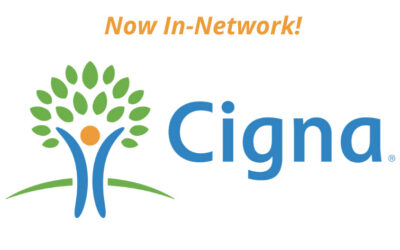How to Help Someone with Addiction
Convincing a loved one that they need professional help for substance abuse is challenging on many levels. There are many questions, such as “How to help someone with addiction and how to encourage someone to go to rehab?
The answer starts with knowledge. Hence, recognizing all the signs and symptoms of substance abuse before asking a loved one to seek addiction help or staging an intervention is a good place to start. From there, it’s about finding a positive balance between helping a loved one with addiction and not enabling them.
Signs and Symptoms of Addiction
Addiction or substance use disorder (SUD) is a medical condition that can happen to anyone. It is not the result of a lack of willpower or morals. Whether an SUD starts with experimental, recreational, or prescription drugs, once addiction gets a choke hold on someone, it’s tough for them to quit.
Sometimes, it’s difficult to distinguish the difference between one’s moods or behaviors and the signs of addiction. For instance, a teenager who sleeps a lot or prefers to be left alone may be showing signs of addiction.
If you are unsure how to help a loved one with addiction, know that there are many common signs and symptoms. Whether just a few or many of these signs are evident, it’s time to seek professional help.
Common signs and symptoms of SUD include:
- The urge to use a substance regularly
- Intense drug or alcohol cravings
- Needing more of a substance to achieve the desired effect
- Spending more than one can afford on drugs or alcohol
- Missing obligations related to work, school, or family
- Continuing to use the drug, even though it’s causing personal or psychological problems
- Engaging in illegal or risky behaviors to get drugs or alcohol
- Driving or engaging in other risky activities while under the influence
- Failing in attempts to stop using
- Experiencing intense withdrawal symptoms when trying to stop using
- Neglected appearance, like wearing the same outfit day after day, lack of hygiene
The risk of getting addicted to alcohol or drugs varies according to several factors. These include one’s genetic makeup, environment, and the possibility of a co-occurring disorder due to a mental illness.
The Consequences of Addiction
As people often say in recovery, things get worse before they get better. To understand how to help someone with addiction, it is essential to acknowledge the consequences that come with substance use disorder. Most people with addiction struggle with psychological symptoms such as depression and crazy mood swings. Therefore, they’re more likely to engage in risky behavior, such as driving while intoxicated or committing crimes to get more drugs.
Additionally, a substance addiction has severe physical effects, ranging from brain, kidney, or liver damage to rotting teeth. According to the U.S. Surgeon General, just one instance of alcohol or drug abuse can have negative consequences, including (but not limited to):
- Immediate consequences. Substance abuse can have immediate, direct implications for health, ranging from effects on heart rate and regulation of body temperature to psychotic episodes, overdose, and death.
- Indirect consequences. These are consequences related to the risky behaviors that often accompany substance abuse. Because alcohol and drugs can impair judgment, dangerous behaviors like driving under the influence (DUI), unprotected sex, or syringe sharing can easily follow.
- Long-term health effects. Heavy drinking can lead to hypertension, liver disease, and cancer. Regular marijuana use is associated with chronic bronchitis. The long-term use of stimulants like cocaine can lead to heart disease.
- Long-term societal consequences. These can include reduced productivity at work or school, financial problems, higher healthcare costs, unintended pregnancy, the spread of infectious disease, drug-related crime, interpersonal and domestic violence, and many other effects on families, communities, the economy, and society.

How to Encourage Someone to Go to Rehab
One of the most significant hurdles when helping someone with addiction is figuring out how to help someone who doesn’t want assistance.
Getting a loved one into rehab may be extremely difficult but not impossible. Additionally, it requires compassion, strategy, and preparation.
Here are some tips on how to get someone into rehab.
- Express Empathy and Concern: Approach the conversation empathetically and express your genuine concern for their well-being. Let them know you care about them and want to see them get their help.
- Educate Them About Treatment Options: Provide information about different rehab programs, therapies, and support groups available. Explain how these programs can help them overcome their addiction and improve their quality of life.
- Focus on the Positive Benefits: Highlight the positive outcomes of going to rehab, such as improved health, better relationships, and a chance to build a fulfilling life free from addiction. Help them envision a positive future after completing treatment.
- Offer Your Support: Let them know they won’t be alone in their recovery journey. Offer to help them research treatment options, accompany them to appointments, or provide emotional support.
- Set Boundaries and Consequences: If they continue to resist going to rehab, setting boundaries and consequences for their behavior may be necessary. Let them know that you will support them in seeking treatment, but there may be consequences if they choose not to take action.
Furthermore, when navigating how to help someone with addiction, it’s crucial to determine whether a loved one recognizes that they have a problem. If they are open to rehab, it’s time to help them choose the treatment facility that best suits their needs.
Signs that a Loved One May Be Ready to Go to Rehab
Conversely, it’s heartening when there are positive signs that someone is receptive to going to rehab, such as:
- Initiating Conversations About Getting Help: They start conversations about their substance use and express a desire to seek treatment or make positive changes.
- Asking for Information or Advice: They seek information about rehab options, treatment programs, or advice on starting the recovery process.
- Acknowledging the Impact of Their Addiction: They openly acknowledge the negative impact their addiction has had on their life and relationships, showing a willingness to address these issues.
- Showing Interest in Support Groups or Therapy: They express interest in attending support groups, therapy sessions, or other forms of treatment, indicating a readiness to participate in the recovery process.
- Making Plans for Treatment: They actively participate in making plans to enter rehab, including researching facilities, talking to healthcare professionals, and setting a timeline for treatment.
Common Signs of Resistance
Helping someone with addiction can be a daunting task, even more so when the person in question isn’t interested in seeking professional help. Common signs of resistance include:
- Denial of Addiction: They consistently deny that they have a problem with substance abuse despite evidence to the contrary.
- Resistance to Discussions About Rehab: They become defensive or dismissive when discussing the topic of rehab, avoiding any meaningful conversation about seeking treatment.
- Minimization of Consequences: They downplay the negative consequences of their addiction, such as legal issues, health problems, or strained relationships, indicating a lack of recognition of the severity of their situation.
- Blaming Others: They shift blame onto others for their substance abuse, refusing to take responsibility for their actions or seek help for themselves.
- Refusal to Consider Treatment Options: They outright refuse to consider any form of treatment, showing a closed-minded attitude toward recovery.
At this point, it may be time to take charge with an intervention.

Supporting Someone With Addiction Through Intervention
If you can’t figure out how to help someone with addiction because they are resistant to recovery, a drug or alcohol intervention is the most effective way to get a loved one into rehab. However, this requires a plan. A solid intervention plan includes the loved one’s closest family and friends.
Interventions frequently include a licensed drug counselor or intervention professional, also known as an interventionist. Intervention may be necessary if the person denies a problem or refuses to get help. Inviting an interventionist to help make the process smoother and more successful.
Planning what to say before approaching a loved one about substance abuse is also a good idea. Write down what to say in advance.
Once a loved one agrees to go into rehab, have a plan to take them directly to a facility.
How to Help a Loved One With Addiction Find Rehab Options
Everyone’s recovery journey is unique. A loved one’s safety, comfort, and best recovery prognosis are vital when choosing a rehab facility. Over the past few decades, professional rehab has become more comprehensive, compassionate, and effective.
Before getting someone into rehab, everyone involved should familiarize themselves with the different addiction treatments available.
Further, while working on how to get a loved one into rehab, arranging all the necessary resources, finances, and logistics, such as packing and transportation, will alleviate a lot of stress.
Now is also the time to contact insurance companies and review options. Most insurance plans cover addiction treatment. Address all copays and deductibles in advance.
How to Help Someone With Addiction During Recovery
Once a loved one has decided to go to rehab, support becomes even more critical. Stay involved in recovery by attending family therapy sessions and participating in support groups if possible.
Offer encouragement and praise for their progress, no matter how small it may seem. Be patient and understanding, as recovery is a journey that takes time.
Create a Supportive Environment
Creating a supportive environment at home can also make a big difference in a loved one’s recovery. Remove any triggers or substances from the house, and encourage healthy habits such as regular exercise and nutritious eating. Be mindful of your language and avoid stigmatizing or judgmental comments.
Celebrate Milestones
Recovery is a journey marked by big and small milestones. Supporting someone with an addiction can be fun. Celebrate these achievements with a loved one to show support and encouragement. Whether it’s a day, a week, or a month sober, each milestone is a step towards a bright future.

Learn More on How to Help Someone With Addiction
If you have any questions about helping someone with addiction, Detox West Tennessee is here for you. Our professional and compassionate team is intimately familiar with addiction on every level.
Furthermore, we’ll help you through the process from start to finish while offering your loved one the best shot at lasting recovery and lifelong wellness.
It’s critical to get help for your loved one now before an overdose or tragedy occurs.
Contact us today to get started.
Program Links
Detox West Tennessee Now In-Network with First Health Insurance
It’s our belief that everyone should have access to the care they need. So anytime we can expand our offering, we jump...
A New Look at Barbiturates
Marilyn Monroe. Judy Garland. Jimi Hendrix. Barbiturates are so lethal, and the risk of overdose is so high that...
Detox West Tennessee Now In Network With Cigna Insurance
Detox West Tennessee Now Accepting Cigna Insurance We take pride in helping as many people as we can find the...
The Dangers of Black Tar Heroin: Health Complications Beyond Addiction
Addiction is only one of the dangers of black tar heroin use. Its crude manufacturing process, unknown contaminant...
What is Kratom? Understanding Its Origins, Uses, and Risks
You may have seen Kratom for sale at a convenience store or heard of Kratom tea and asked yourself, “What is Kratom?”...
Visit us at
370 North Cumberland St.
Jackson, Tennessee, 38301
Hours
- Open 24 hours







